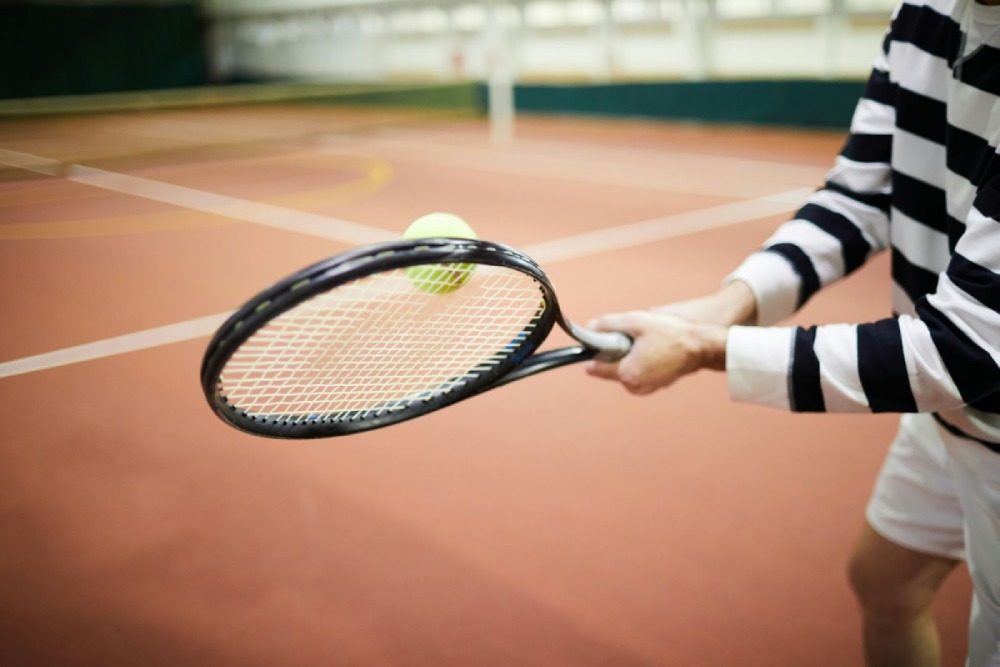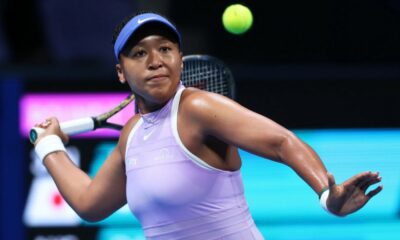Sports
Evan Byron Explains Why Tennis is More Than Just a Game

Tennis is more than a sport—it’s a blend of athleticism, strategy, and personal growth. From the very first serve, players enter a dynamic space where focus, technique, and resilience intertwine. Each match becomes a test not only of skill but of character, demanding discipline, patience, and the ability to adapt under pressure. As noted by Evan Byron, mastering tennis involves far more than physical training; it develops mental fortitude and builds meaningful connections.
The Serve: Foundation of the Game
In tennis, the serve is more than just the first shot—it sets the tone for the entire point. A well-placed serve can disrupt an opponent’s rhythm and create immediate openings for control. Players like Serena Williams and Roger Federer have built careers around the precision and power of their serves, using it as a tactical weapon.
Serving also tests a player’s ability to stay composed under pressure. Whether it’s match point or the first game, the serve demands focus and execution. Its importance lies not just in scoring, but in shaping the flow of play from the start. Even in doubles, a strong serve can determine how aggressively a team starts the match.
Building Technique Through Practice
Mastering the serve begins with refining body mechanics. The stance, toss, and timing must align in a fluid motion to produce a consistent and effective delivery. Even slight variations in grip or foot placement can throw off balance and accuracy, making repetition essential for improvement.
Top players spend hours each week perfecting the smallest details. Novak Djokovic’s serve evolved immensely over his career, transforming from a relative weakness into a reliable asset. That shift didn’t happen overnight—it was the result of focused, methodical practice and adjustments made over time. Coaches often record and analyze slow-motion footage to help players fine-tune their movements.
Focus, Fitness, and Follow-Through
Serving under pressure demands more than just skill—it requires mental clarity and physical stamina. The ability to block out distractions and commit to a routine, especially in high-stakes moments, separates elite players from the rest.
Maintaining serve consistency deep into a match also highlights the importance of endurance. Long rallies and tight scorelines test a player’s ability to stay sharp. Rafael Nadal’s intense physical conditioning allows him to serve with the same energy deep into five-set matches, showing how discipline in training translates directly to performance.
Tennis as a Tool for Personal Growth
Learning tennis often mirrors the experience of personal growth. Players must embrace failure, adapt to challenges, and trust the process—all qualities that extend far beyond the court. Growth comes not just from winning points, but from learning how to bounce back after setbacks.
Partnerships in doubles also foster communication and trust. Effective teamwork requires players to read each other intuitively, building rapport that can translate into stronger interpersonal skills off the court. These collaborative dynamics help reinforce patience, empathy, and decision-making in a broader context. In youth development programs, coaches often use tennis as a metaphor for setting goals and overcoming obstacles.
Connecting Through the Game
Tennis creates bonds that transcend boundaries. Whether it’s a friendly match between neighbors or an international tournament watched by millions, the sport brings people together with a shared passion. Weekly club meetups and local leagues often become tight-knit communities where relationships grow just as much as skill levels.
Beyond competition, tennis serves as a bridge across cultures and generations. Youth programs in cities around the world introduce the sport to new players, often becoming a gateway to mentorship, education, and lifelong friendships. Events like the Davis Cup and Billie Jean King Cup highlight how national pride and unity are often expressed through this global sport.
The Deeper Value of Playing Tennis
At its core, tennis teaches more than how to hit a ball—it offers a framework for discipline, self-reflection, and perseverance. The solitary nature of the serve, repeated point after point, becomes a quiet ritual of focus and intent.
Many players come to realize that the lessons learned during matches echo in daily life. Whether it’s the ability to stay calm in a tense moment or the drive to improve through consistent effort, tennis provides a space where growth is both personal and purposeful. It’s not uncommon for players to carry the patience and resilience honed on the court into their careers, relationships, and daily routines.
-

 Business4 weeks ago
Business4 weeks agoWhere There Is a Will, There Is a Way: Hayson Tasher and the New Year, New Me Mindset in Security Entrepreneurship
-

 Health3 weeks ago
Health3 weeks agoMy Juno Health Enterprise Partnerships Signal Shift From Claims Management to Utilization Prevention
-

 Business3 weeks ago
Business3 weeks agoAlain Khoueiry and His Mission to Present Kazakhstan as a Land of Opportunity and Wonder
-

 Health2 weeks ago
Health2 weeks agoShame, Trauma, and the Mind-Body Connection: How Dr. Karina Menali’s Kai Wellness Frames Emotional Healing as Integral to Physical Health
-

 Music4 weeks ago
Music4 weeks agoBTS will Return With ‘BTS THE COMEBACK LIVE | ARIRANG’ Concert and New Documentary on Netflix
-

 Tech3 weeks ago
Tech3 weeks agoBobby Atkins, Stonington Connecticut: How Effective Material Handling Supports On-Time Manufacturing Output
-

 Apps4 weeks ago
Apps4 weeks agoBest Apps with Simple IPO Application Process
-

 Business3 weeks ago
Business3 weeks agoStephen Straz: Building Success Through Business Leadership
























